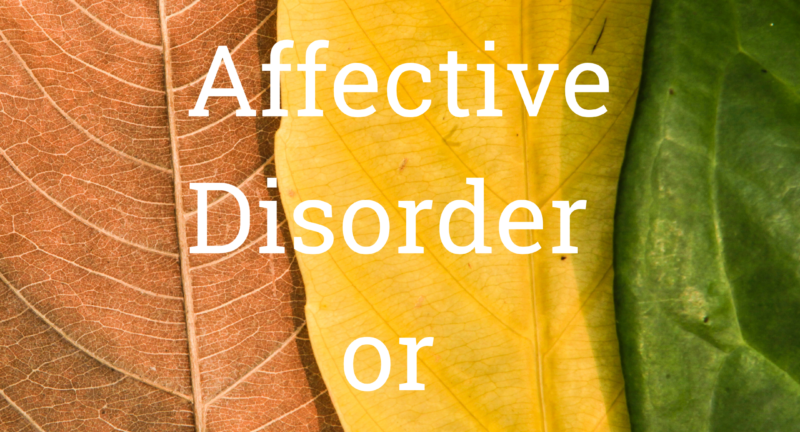
Learn about Seasonal Affective Disorder
Fall is just around the corner. While the thought of pumpkins and cozy sweaters might be exciting to some people, the thought of less sunshine and colder weather is less-than-thrilling for others.
For some people, saying goodbye to summer can trigger seasonal affective disorder (SAD), a type of depression that’s linked to changes in the seasons.
But how do you know if you just happen to like summer more than fall — or if you have SAD? In this blog, we take a closer look at what SAD is and how to know if you need to discuss SAD with your provider.
How Do You Know If You Have SAD?
Common symptoms of SAD include:
- Sleeping a lot but still feeling tired
- Changing in appetite, especially craving sweets and carbs
- Low energy
- No interest in your favorite activities
- Feeling sad
- Difficulty concentrating or focusing
- Feeling worthless
SAD can start at any age, but it most often starts to affect adults between the age of 18 and 30. If you think your symptoms might be related to SAD, you’ll need an accurate diagnosis before embarking on any treatment plan. Many mental health conditions share similar symptoms (such as trouble concentrating), which makes an evaluation that much more important.
To be diagnosed with SAD, a person must meet specific criteria:
- Have the symptoms of major depression
- The depressive episodes must occur during specific seasons (i.e., only during the winter months or the summer months) for at least 2 consecutive years
Sunlight goes down. Sadness goes up.
Treating Seasonal Affective Disorder
SAD can be treated with both lifestyle modifications and medication. Common treatments include:
- Spending as much time in the sunlight as possible (e.g., an early morning walk)
- Light therapy (which involves sitting near a light box that generates 10,000 lux
- Psychotherapy
- Medication, including antidepressants
- Vitamin D supplements (studies show that individuals with SAD are more likely to be deficient in vitamin D)

Help Is Here
With the right treatment, you can feel better. Here at Next Step 2 Mental Health, our team of experienced providers is skilled at diagnosing and treating many types of depression, including major depression, seasonal depression, and postpartum depression. If you’d like to make an appointment with our compassionate and knowledgeable providers, click here to make a telehealth or in-person appointment in our Louisville, Kentucky office. You can also call us at 502-339-2442.
Related Posts
Do You Have Depression or Seasonal Affective Disorder?
Winter blues. Winter funk. The Blues. Whichever name you use, the reality is that...
Boost Your Mental Health with These At-Home Activities
Whether you're stuck at home quarantining after a COVID exposure or you're simply...


